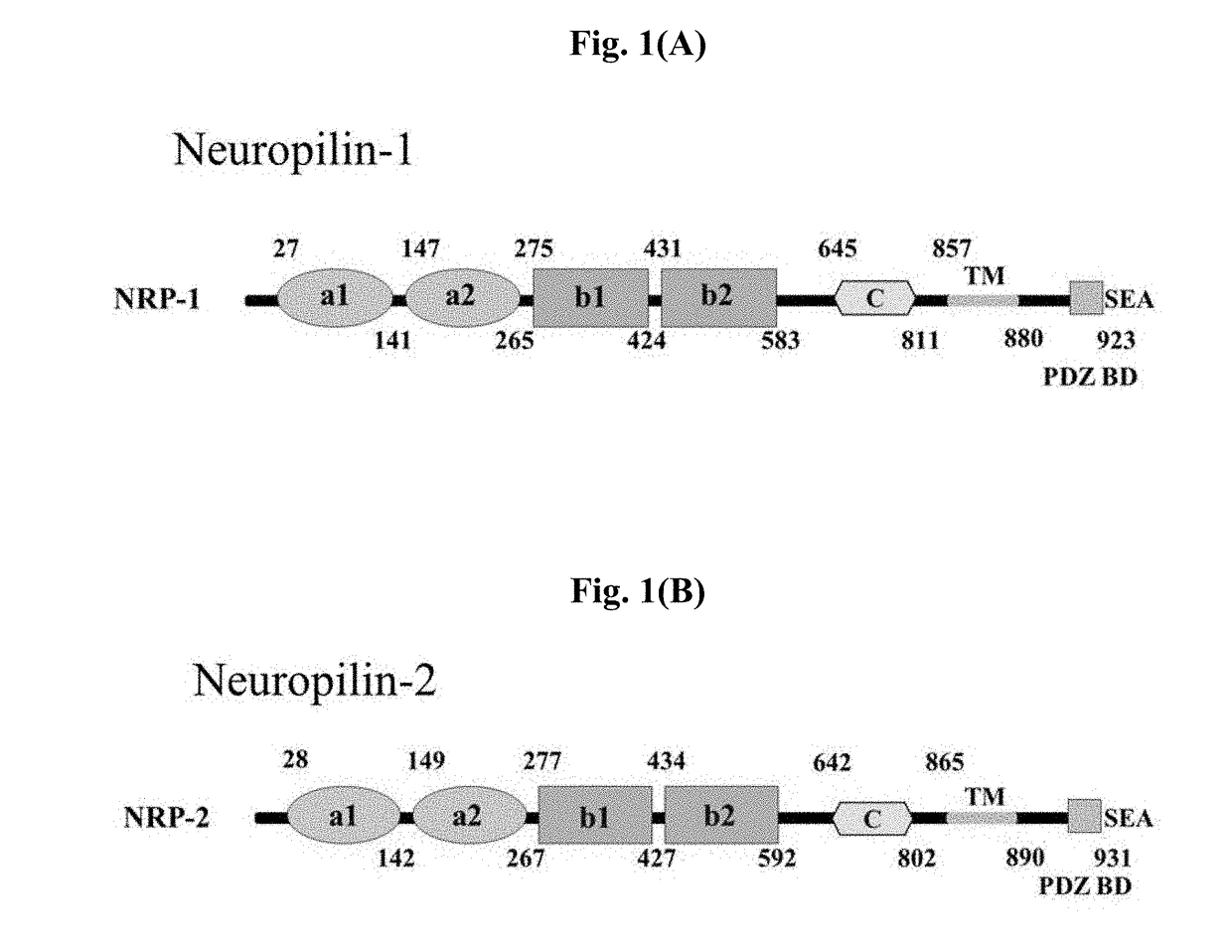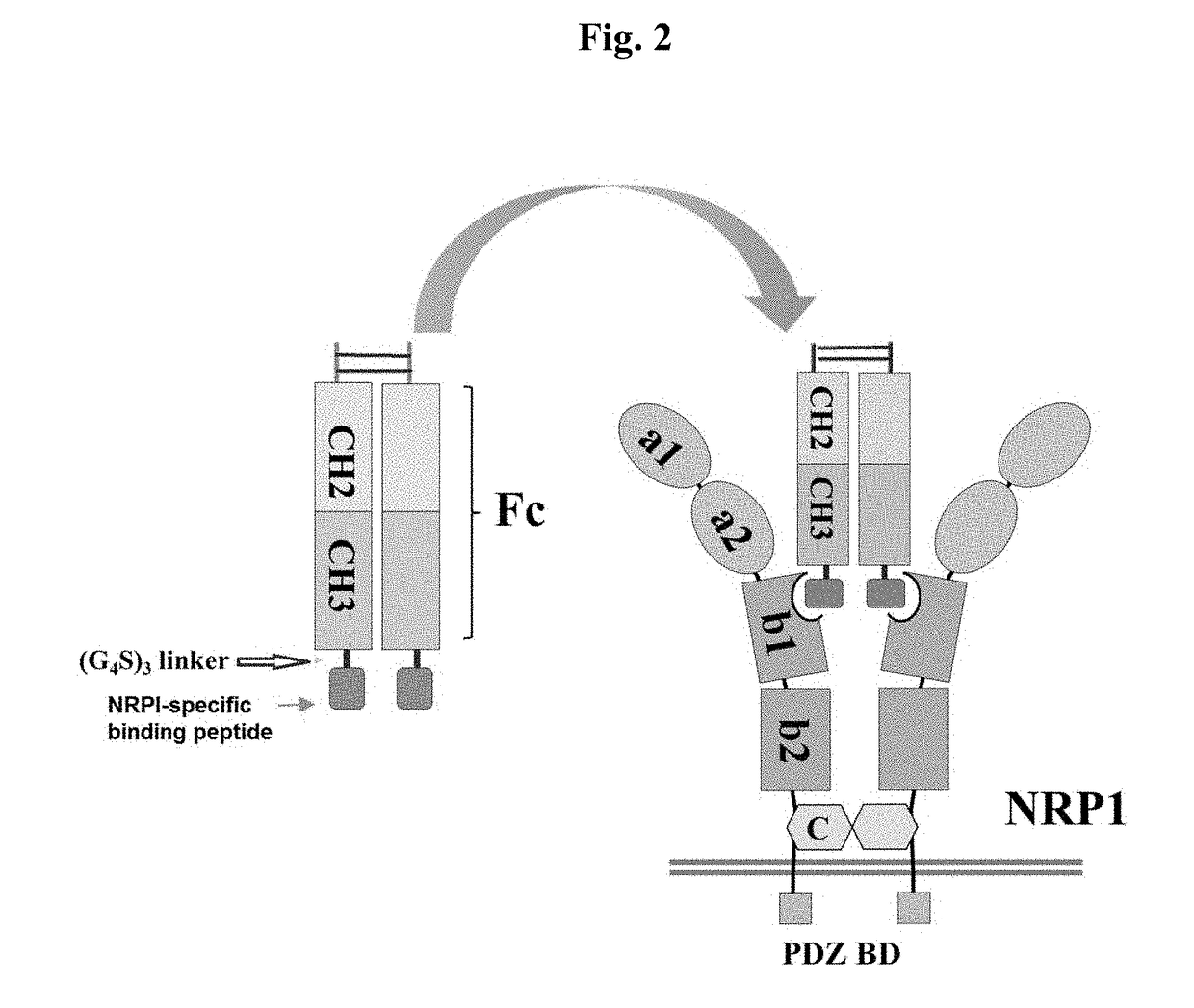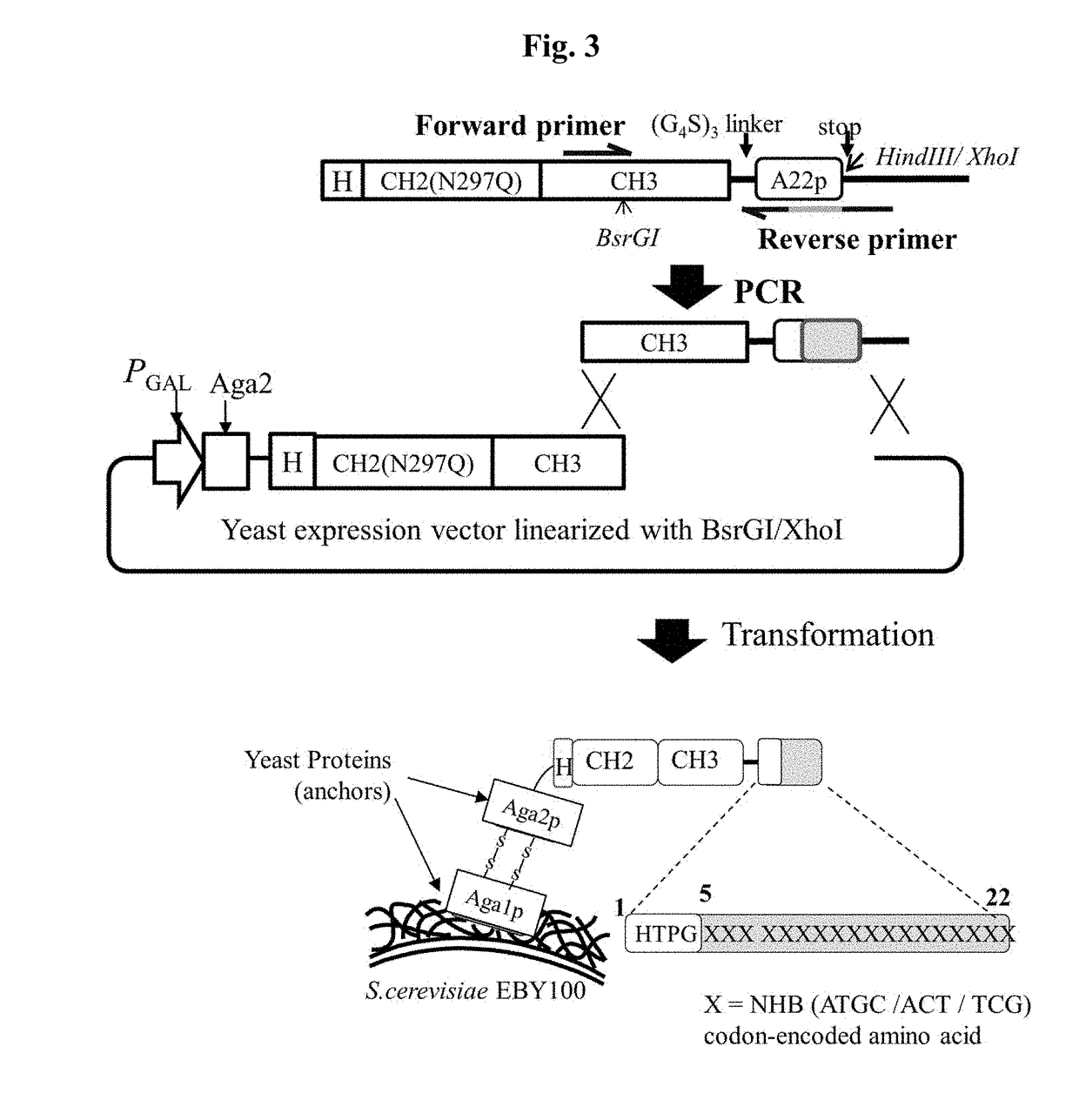Neuropilin-1 specific binding peptide, fusion protein fused with same, and use thereof
a technology of fusion protein and tumor tissue, which is applied in the direction of peptides, receptors for growth factors/regulators, drug compositions, etc., can solve the problems of large amount of new blood vessels that are not uniformly produced to reduce the overall blood flow rate, the effect of increasing the anti-tumor activity in vivo and promoting extravasation
- Summary
- Abstract
- Description
- Claims
- Application Information
AI Technical Summary
Benefits of technology
Problems solved by technology
Method used
Image
Examples
example 1
ion of Peptide Library that Binds Specifically to Arginine-Binding Pocket of NRP1-b1
[0164]As shown in FIGS. 1(A) and 1(B), neuropilin includes 5 major domains, in which a1 and a2 domains from the N-terminus are classified as CUB domains, to which the semaphorin Ig-like C2 type domain binds. Particularly, this domain forms a complex with plexin to increase the semaphorin-plexin binding affinity. The b1 and b2 domains are classified as FV / VIII domains, and the C-terminus of VEGF or class 3 semaphorin ligands binds thereto. Particularly, in this portion, a site to which heparin can bind is present, and it facilitates the binding of ligands containing many positively charged residues. Further, MAM induces oligomerization, the transmembrane domain (TM) enables neuropilin to be fixed to the cell surface, and in a cytosolic domain, a site capable of binding to a Postsynaptic density 95, Disk large, Zona occludens 1 (PDZ) domain is present. Among these domains, particularly the b1 domain ha...
example 2
of Single Clones Binding Specifically to Only NRP1 from Constructed Fc-Peptide Library Obtained by Fusion to Antibody Heavy-Chain Constant Region (Fc)
[0168]The target protein NRP1-b1b2 (273-586) and the competitive protein NRP2-b1b2 (275-595) were prepared with a purity of 90% or higher according to conventional methods (BA Appleton et al., 2007). The target protein NRP1-b1b2 was biotinylated as shown in FIG. 4 (EZ-LINK™ Sulfo-NHS-LC-Biotinylation kit (Pierce Inc., USA)).
[0169]FIG. 4(A) schematically shows the structures of biotinylated neuropilin-1 b1b2 protein and neuropilin-2 b1b2 protein used to select a peptide that binds specifically to NRP1, and also shows the results of expressed and purified SDS-PAGE.
[0170]FIG. 4(B) shows the results of FACS performed to analyze a pool in each selection round after MACS and FACS of the constructed library. This can analyze the expression level of the antibody heavy-chain constant region (Fc) and binding to biotinylated NRP1-b1b2, and compar...
example 3
ion and Expression / Purification of Antibody Heavy-Chain Constant Region Fused with Peptide that Binds Specifically to NRP1
[0176]To express the individual clones, selected in Example 2, in mammalian cells, the DNA recovered from the yeast cells was treated with BsrGI and HindII restriction enzymes to obtain the CH3 of the antibody heavy-chain constant region and the peptide portion that binds specifically to NRP1. The obtained DNA fragments were cloned into a pcDNA3.4 vector as shown in FIG. 6.
[0177]Using a HEK293-F system (Invitrogen), a plasmid encoding a fusion protein of the antibody heavy-chain constant Fc region and the selected peptide that binds specifically to NRP1 was transiently transfected to express the protein. In a shaking flask, HEK293-F cells (Invitrogen) suspended in serum-free FreeStyle 293 expression medium (Invitrogen) were transfected with a mixture of a plasmid and polyethylenimine (PEI) (Polyscience). For 200 mL transfection in a shaking flask (Corning), HEK29...
PUM
| Property | Measurement | Unit |
|---|---|---|
| molecular weight | aaaaa | aaaaa |
| diameter | aaaaa | aaaaa |
| diameter | aaaaa | aaaaa |
Abstract
Description
Claims
Application Information
 Login to View More
Login to View More - R&D
- Intellectual Property
- Life Sciences
- Materials
- Tech Scout
- Unparalleled Data Quality
- Higher Quality Content
- 60% Fewer Hallucinations
Browse by: Latest US Patents, China's latest patents, Technical Efficacy Thesaurus, Application Domain, Technology Topic, Popular Technical Reports.
© 2025 PatSnap. All rights reserved.Legal|Privacy policy|Modern Slavery Act Transparency Statement|Sitemap|About US| Contact US: help@patsnap.com



